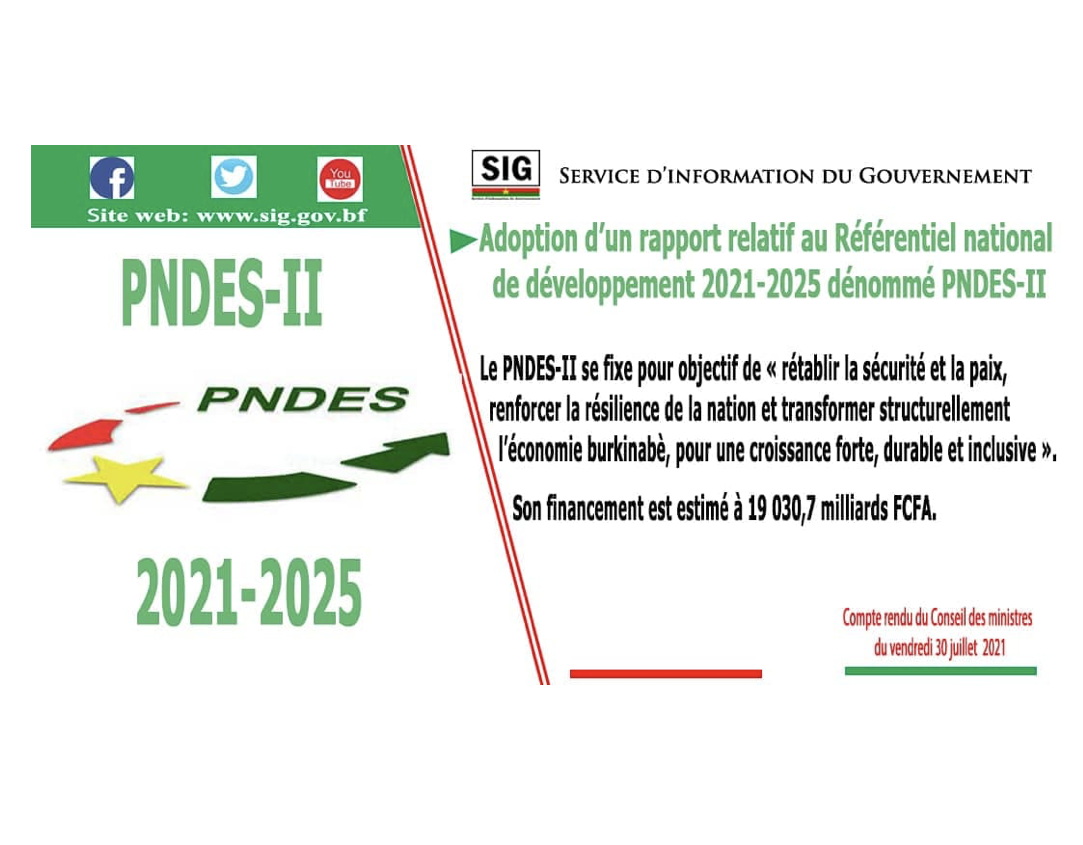The National Economic and Social Development Plan (PNDES-II) is part of the drive to make the population more secure, modernize the optimal conditions for improving the well-being of the Burkinabe people, and improve the business climate throughout the country. Its overall objective is to “restore security and peace, strengthen the nation’s resilience and structurally transform the Burkinabe economy, for strong, sustainable and inclusive growth.”
The overall cost of implementing the PNDES-II is estimated at over 19,000 billion CFA francs, or an average annual cost of 3,806.1 billion CFA francs. The share devoted to capital expenditure, including capital transfers, is 34.7%, corresponding to a financial envelope of 6,608.1 billion CFA francs, or 1,321.6 billion CFA francs a year.
Expected results
By the end of implementation of the PNDES-II in 2025, seven overall impacts are expected, according to the government. These include Strengthening peace, security, social cohesion and the country’s resilience through the socio-economic recovery/reintegration of internally displaced persons (IDPs), whose rate will rise from 7% in 2020 to over 50% in 2025. consolidating democracy and improving the efficiency of political, administrative, economic, financial, local and environmental governance.
lan also plans to improve the health and living conditions of the population, lowering the infant and child mortality rate per 1,000 from 81.6 in 2015 to 75 in 2025, and reduce the poverty rate from 41.4% in 2018 to less than 35% in 2025.


